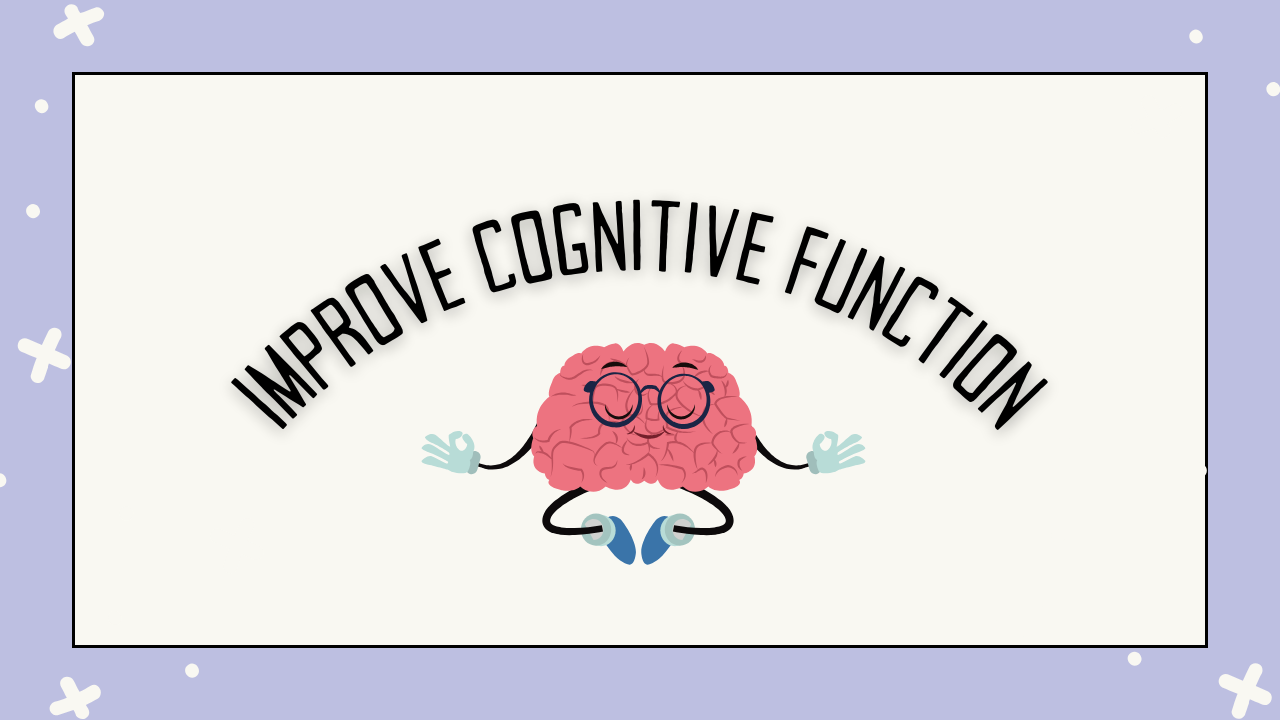The human brain is often compared to a muscle—just like the rest of the body, it needs regular exercise to remain sharp, agile, and healthy. While we may think of fitness in terms of physical activities, mental workouts are just as crucial for long-term cognitive health. Incorporating brain exercises into your daily routine can help Improve Cognitive Function, concentration, problem-solving skills, and even delay the effects of aging. In this blog, we’ll explore effective brain exercises to enhance mental agility, supported by science and expert opinions.
Why Brain Exercises Matter
The brain is a highly adaptable organ, capable of forming new neural connections throughout life, a trait known as neuroplasticity. Mental exercises stimulate this process, leading to better cognitive functioning, faster thinking, and even increased creativity. Regular brain stimulation can help stave off cognitive decline, improve memory retention, and enhance the brain’s ability to process information more efficiently.
1. Reading and Expanding Vocabulary
One of the simplest yet most effective ways to boost brainpower is by reading. Whether it’s novels, academic journals, or even daily news articles, reading stimulates several areas of the brain. It not only sharpens your comprehension skills but also enhances your ability to think critically. Expanding your vocabulary is another great way to exercise your brain. Learning new words increases cognitive processing speed and improves verbal intelligence, as you consistently engage parts of your brain responsible for language processing.
How to Practice:
- Set a daily reading goal, even if it’s just 10 minutes a day.
- Keep a dictionary or a language app handy to look up unfamiliar words.
- Challenge yourself by reading about topics outside your comfort zone to engage new mental pathways.
2. Playing Brain-Teasing Games
Games such as crossword puzzles, Sudoku, chess, and other strategy-based board games are known for enhancing cognitive abilities. These activities push your brain to think critically and solve complex problems. Strategy games, in particular, help in enhancing memory, problem-solving, and logical reasoning.
How to Practice:
- Dedicate a few minutes daily to solving a puzzle or playing a game that requires concentration.
- Try playing online brain-training apps that offer timed cognitive exercises designed to sharpen your mental faculties.
- Engage in multiplayer strategy games like chess, which challenge you to think several steps ahead, thus boosting your planning and reasoning skills.
3. Learning a New Skill
Acquiring a new skill—whether it’s playing a musical instrument, cooking a new recipe, or learning a new language—exercises various parts of the brain simultaneously. Research has shown that learning something unfamiliar helps improve memory and cognitive flexibility.
How to Practice:
- Commit to learning a new skill over the course of several months, dedicating time each day to practice.
- Join a class or use online platforms that offer structured lessons.
- Consistently challenge yourself with new tasks or aspects of the skill you’re trying to master.
4. Physical Exercise for Mental Fitness
Physical exercise isn’t just good for your body—it’s essential for brain health too. Aerobic activities, like running or swimming, have been shown to increase the size of the hippocampus, the part of the brain responsible for memory and learning. Moreover, physical exercise encourages the growth of new neural connections, contributing to better cognitive function.
How to Practice:
- Incorporate at least 30 minutes of moderate physical activity into your daily routine.
- Try combining physical and mental workouts by engaging in activities like dancing, which requires both coordination and memory.
- Opt for mindfulness-based physical activities such as yoga or Tai Chi, which engage both mind and body, helping improve focus and reduce stress.
5. Meditation and Mindfulness Practices
Meditation has been widely studied for its positive effects on brain function. Regular mindfulness meditation has been linked to increased gray matter in the brain and improved attention and memory. Additionally, practicing mindfulness can help reduce stress and anxiety, which are known to impair cognitive function.
How to Practice:
- Start with short, guided meditation sessions, working up to longer durations as you build consistency.
- Practice mindfulness throughout your day, taking moments to focus on your breath or surroundings.
- Use apps like Headspace or Calm to guide your practice and track your progress.
6. Socializing and Engaging in Conversations
Interacting with others, whether through casual conversation or in-depth discussions, stimulates various areas of the brain. Engaging in social activities has been linked to improved cognitive functions and even a reduced risk of dementia. Conversations challenge your brain to stay engaged, think on its feet, and respond effectively, thereby improving mental agility.
How to Practice:
- Regularly engage in meaningful conversations with friends, family, or colleagues.
- Join clubs or community groups where you can meet new people and have intellectually stimulating conversations.
- Seek out social activities that require teamwork or problem-solving, such as group puzzles or debates.
7. Journaling and Creative Writing
Writing, whether it’s through journaling or creative endeavors, activates the brain’s cognitive processes related to memory, attention, and verbal intelligence. When you write, you’re forced to organize your thoughts, choose words carefully, and articulate them clearly, thus sharpening your brain’s language and communication abilities.
How to Practice:
- Start journaling your daily experiences or writing short stories to engage your creative thinking.
- Set aside time each day to write down new ideas or reflections on what you’ve learned.
- Try writing about complex subjects in a simple manner, which can enhance both your understanding of the topic and your ability to communicate it.
Conclusion: Keep Your Brain Active
Incorporating brain exercises into your daily routine doesn’t have to be overwhelming. Simple activities like reading, socializing, or learning something new can have profound effects on cognitive health. Consistency is key, as regular brain stimulation over time can enhance mental agility, protect against cognitive decline, and improve your overall quality of life. Whether you’re solving puzzles, engaging in thoughtful conversation, or breaking a sweat through physical exercise, remember that every little bit of brain activity contributes to a healthier, sharper mind.


